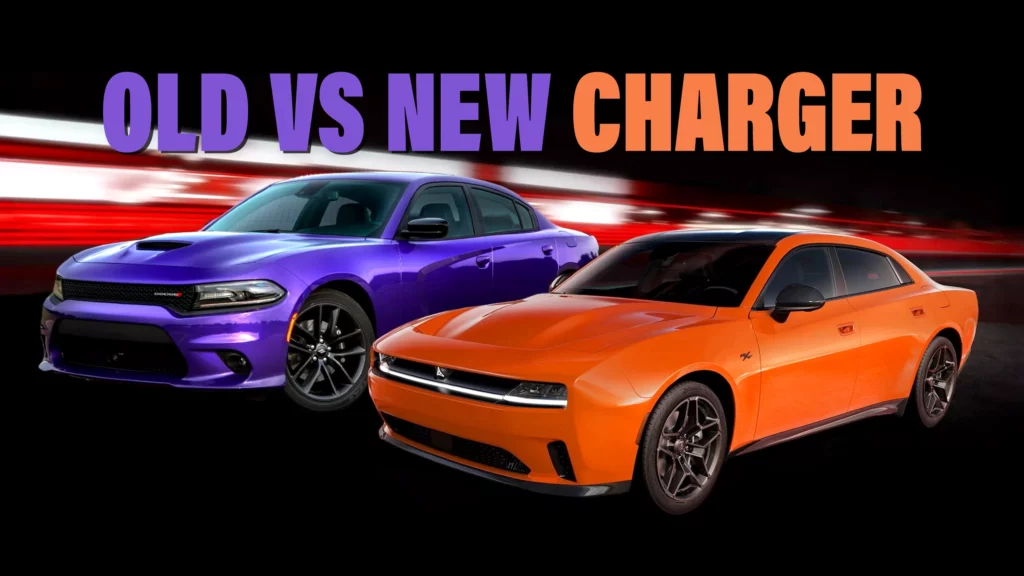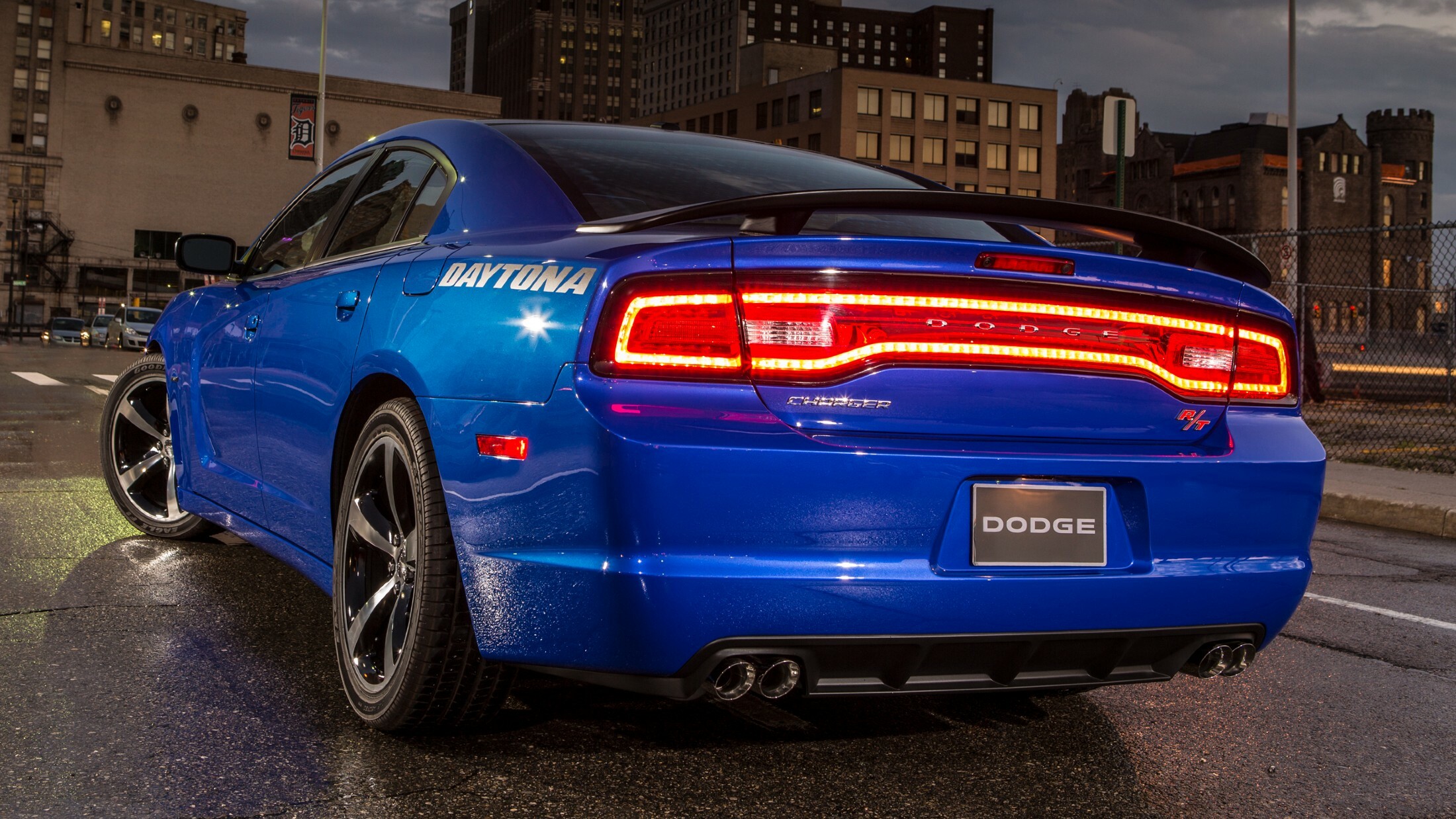With the new generation of the Charger, Dodge is trying to hit two birds with one stone.The two-door coupe serves as a successor to the Challenger, while the forthcoming four-door sedan, set to debut next year, will replace the outgoing Charger, offering both ICE and EV variants. While the automaker hasn’t shared many details about the longer and more practical version of the muscle car, that hasn’t stopped us from conducting a visual comparison with its predecessor.
The new Challenger and Charger duo depart from the visually distinct styling of their predecessors, with both the two-door and four-door Chargers sharing a significant portion of their body panels, including the roof as well as the floor. As recently confirmed by the design boss at Stellantis, they also share the same length at a hefty 206.6 inches (5,252 mm).
The front and rear ends appear identical, while the profile features the same styling language. This represents a departure from the outgoing Charger, opting for a retro-futuristic aesthetic rather than a modern stance.
More: How Does The 2024 Dodge Charger Coupe Compare To The Challenger?
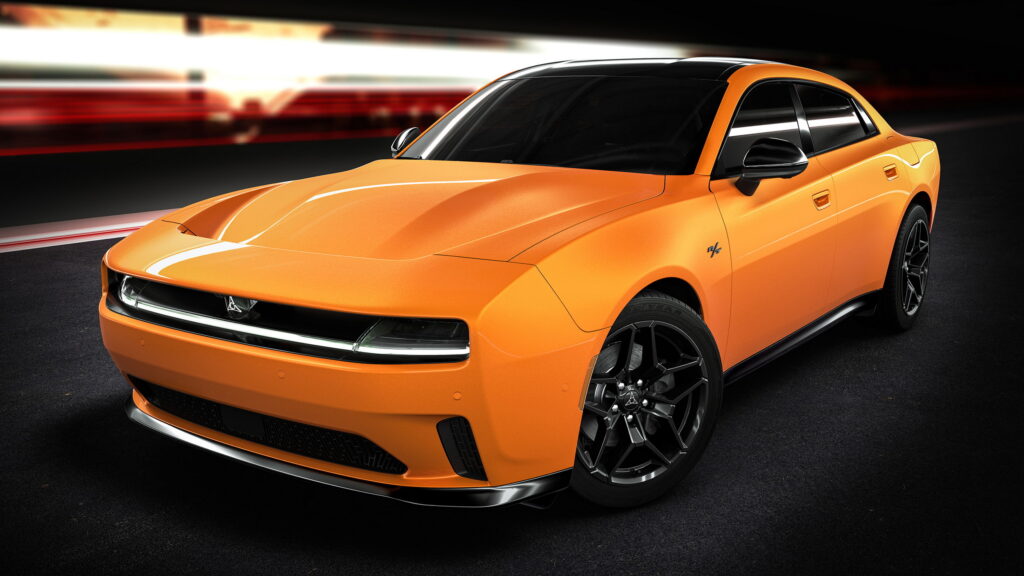
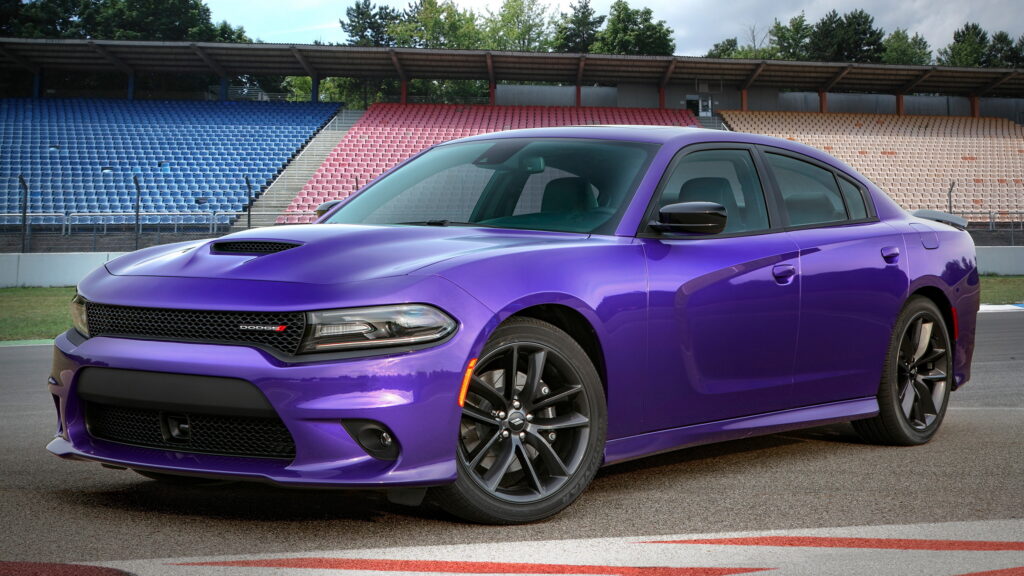
The new Charger’s front end differs significantly from the model it replaces, despite the similarly-shaped bumper intakes. Inspired by the 1969 Dodge Charger, features such as the hidden headlights and elongated grille, which doubles as an aerodynamic element leading to the hood vents (in the fully electric version), harken back to the past.
However, modern touches like the full-width LEDs and surfacing bring us firmly into the present. Overall, while the front end appears less aggressive compared to the outgoing Charger, its simplicity may ensure its longevity over time.
More: Dodge Charger Daytona Is Longer Than BMW X7, Heavier Than Cadillac Escalade ESV!
In profile, the two Chargers share a common feature: the slightly curved character line that accentuates the rear shoulders, paying homage to their popular ancestor. However, while the older Charger boasts a more sculpted approach to surfacing and adheres to conventional three-box proportions typical of a sports sedan, the newcomer resembles a lengthened version of the two-door fastback, mirroring all of its styling cues.
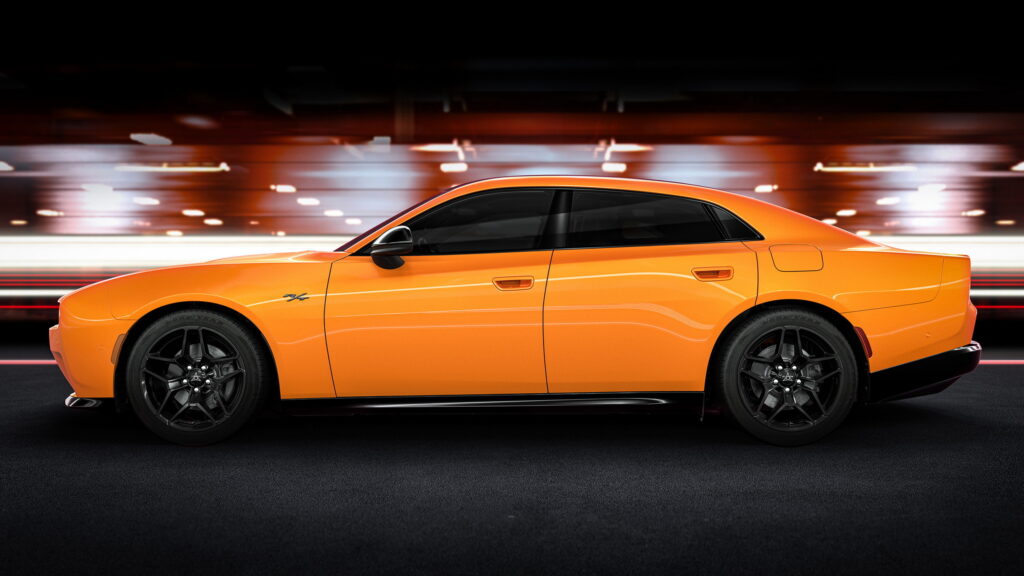
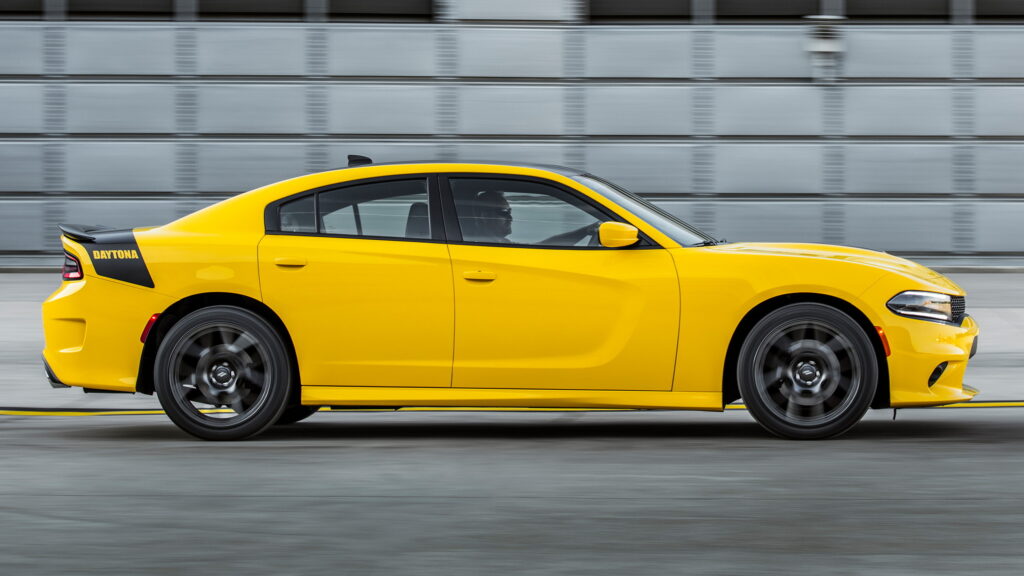
Moving over to the back, both models come with full-width LED taillights and vertically mounted vents on the bumper – but that is where the similarities end. The tail of the new generation is a lot more angular, distancing itself from the curves of its predecessor.
The same aesthetic touch extends to the rear bumper, featuring a protruding element finished in glossy black with Daytona lettering above the discreet diffuser. The absence of tailpipes signifies the EV nature of the new Charger, although the lineup will also include an ICE-powered version. The latter will forgo the V6 and V8 powertrains of the existing model in favor of a twin-turbo 3.0-liter Hurricane inline-six, delivering outputs of 420 hp (426 PS) and 550 hp (558 PS).
It’s worth noting that the eighth-generation Charger bears no technical relation to its predecessor, as it is based on the all-new, EV-centric but highly-flexible, STLA Large architecture.
More: Chrysler To Launch Electric SUV Next Year Plus A Facelifted Pacifica
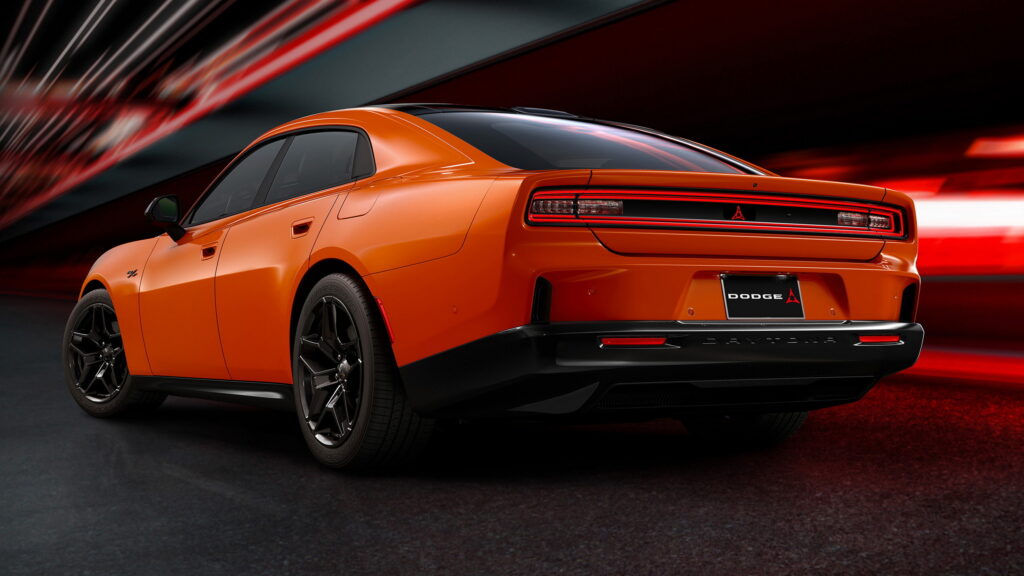
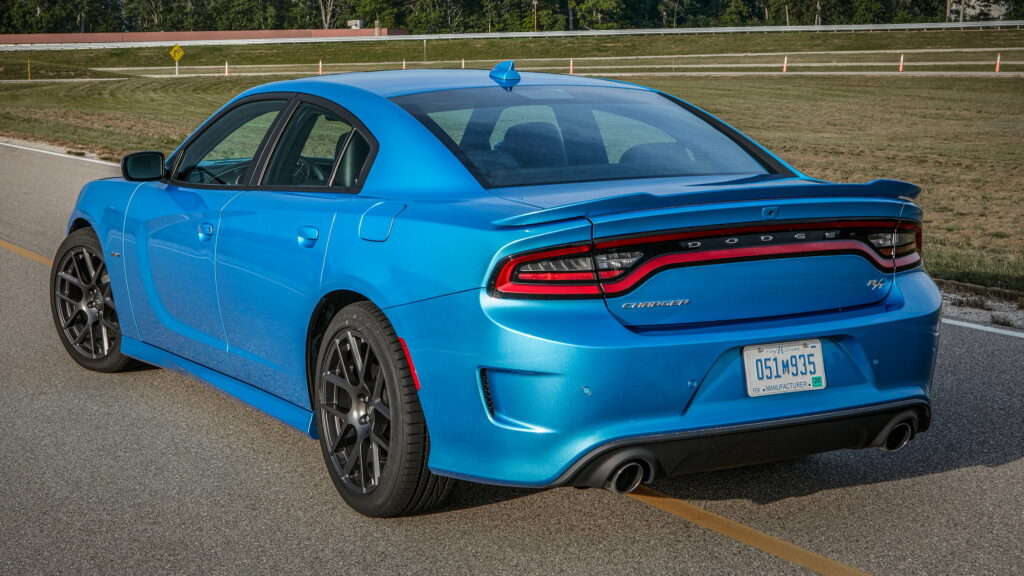
Last but not least, the interior of the four-door Charger is shared with its two-door sibling, bringing the latest in terms of design and technology. In comparison, the dashboard of the older model looks like it belongs to a light commercial vehicle with a much smaller infotainment display, bulky physical controls, shiny materials, and analog instruments.
Fans of tech-filled EVs will love the dual-screen layout of the new Charger with the digital instrument cluster measuring up to 16 inches in diameter and the standard 12.3-inch touchscreen incorporating the UConnect 5.0 infotainment. The straight lines on the dashboard and the center console are probably the only nods to the classic Charger.
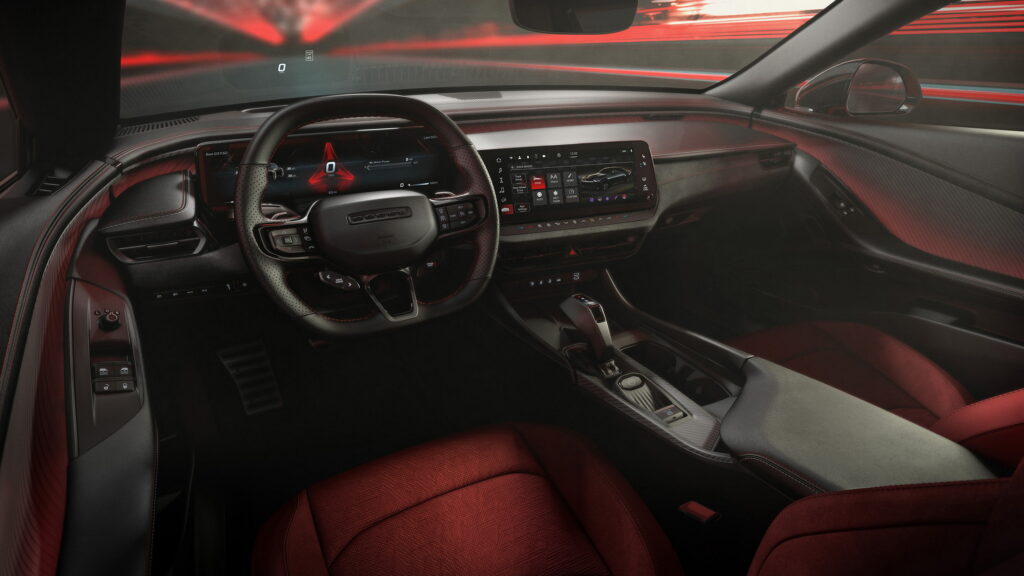
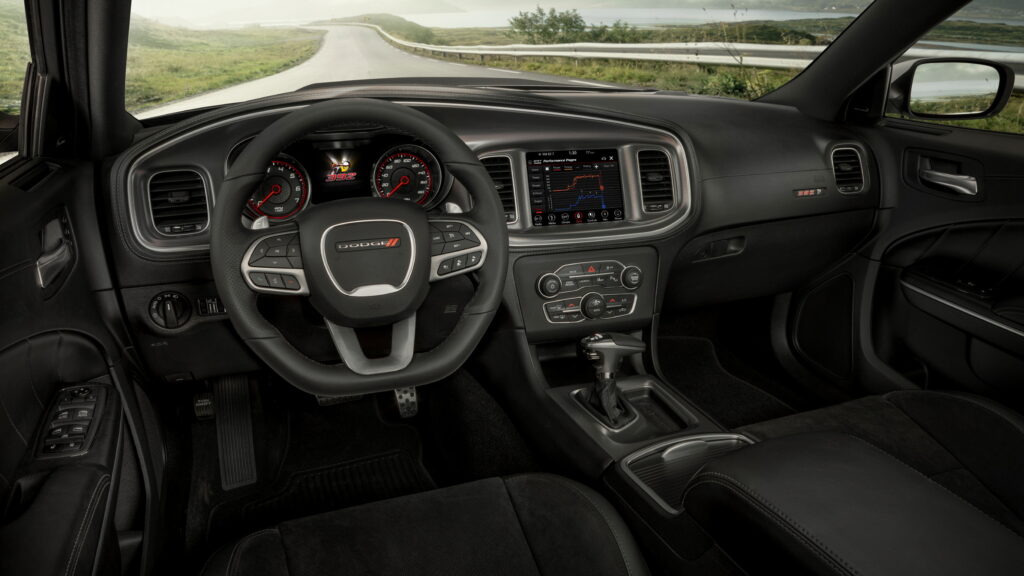
This concludes our visual comparison between the two latest versions of the Dodge Charger. Stay tuned for further updates on the new four-door muscle car, including detailed specifications, expected to be announced by Dodge closer to its anticipated market launch in 2025.
Do you prefer the angular and retro-inspired styling of the new Charger over the aggressive stance of the outgoing generation? Bear in mind that the latter dates back to 2011, when the seventh-gen Charger was originally introduced, before receiving a comprehensive facelift in 2014 and a series of model-year updates.




